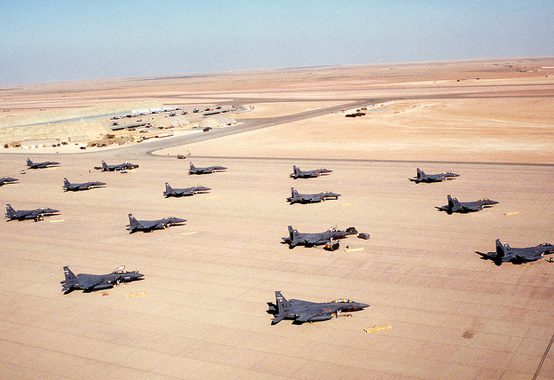NATO and “Arab NATO”

The Bloomberg editors warn against supporting a so-called “Arab NATO”:
It’s worth noting that wealthy little Oman, often the canniest of Arab states, has shown no inclination to join the Saudi cause, either in next-door Yemen or the broader Arab military force. The U.S. and Western powers should be equally cautious of an Arab NATO — especially if it’s not very much like NATO.
Most of the editorial’s points are well taken. A Saudi-led military organization would be designed to facilitate interventions in neighboring countries wherever the Saudi government thought it perceived a threat from Iran, and it is intended to oppose and reduce Iranian influence. That would make it a destabilizing and dangerous coalition, and the U.S. shouldn’t have anything to do with it. The Saudis and many of the other Gulf states already do quite enough damage to regional stability with their current level of support for proxies. A formal military organization would do more. This Saudi-led group would presumably want to intervene to shore up member governments against internal enemies, but it wouldn’t be surprising if it also tried to destabilize regimes that it considered to be too close to Tehran. As a Sunni authoritarian version of the Holy Alliance, it would likely be a force committed to quashing popular uprisings and propping up corrupt governments.
If the U.S. lent support to such an organization, the U.S. would repeatedly be at risk of being pulled into new conflicts along with the members of this “Arab NATO.” In that respect, this new coalition would not be so different from the way that NATO has evolved since the end of the Cold War. When NATO was deprived of its original adversary with the dissolution of the USSR, it kept searching for a new purpose. It found that purpose in conducting “out of area” military campaigns against governments that posed no real threat to its members and by engaging in “humanitarian” interventions that had nothing to do with collective defense. The new Saudi-led bloc won’t be bothering with the pretense of being a defensive alliance, but it probably will imitate the worst habits of the post-Cold War NATO.
Comments